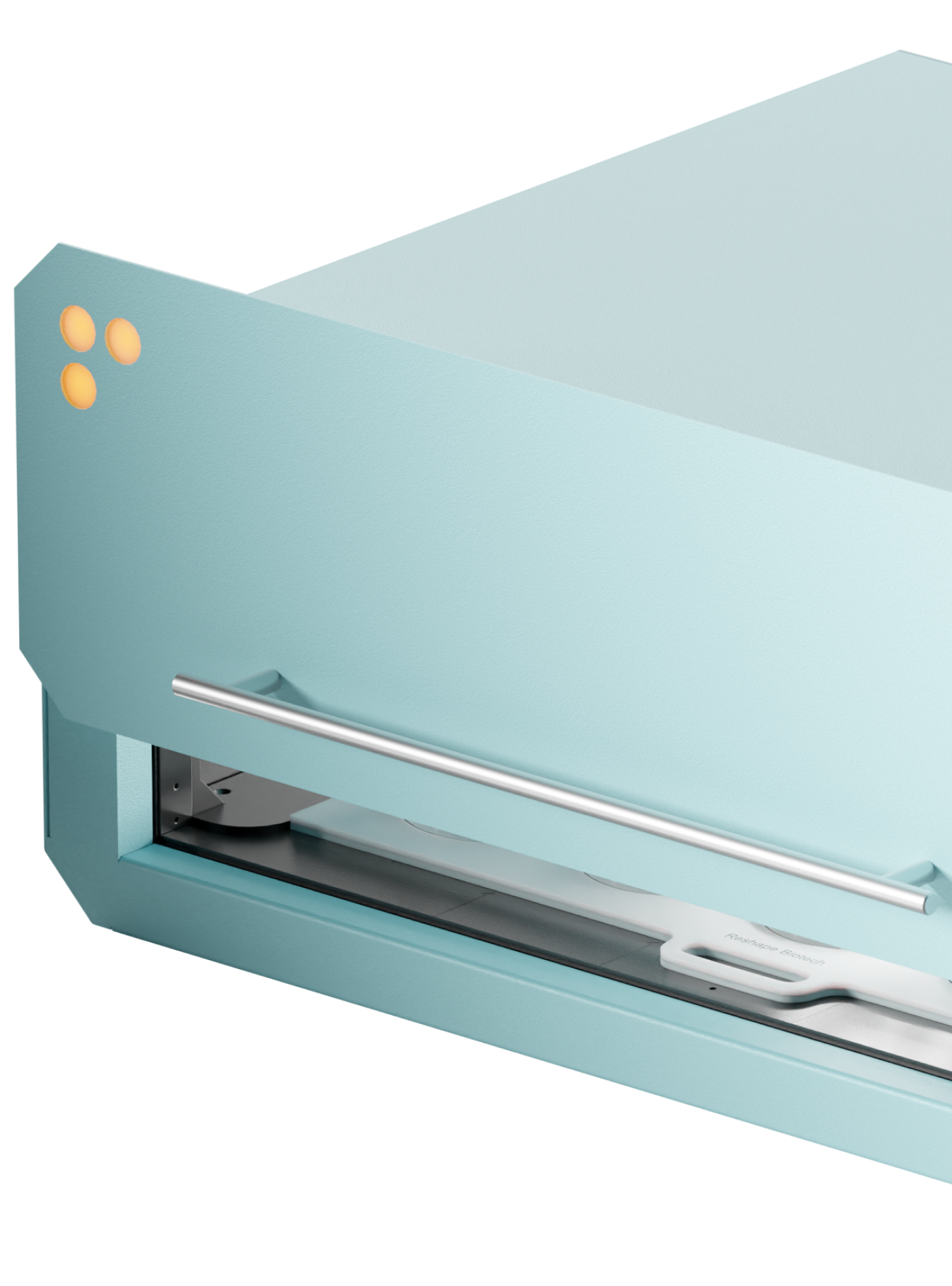How Imperial College Lab Advances Metabolic Engineering Research with Reshape
How Rodrigo's team at Imperial College uses the Reshape Microbiology platform to screen for complex metabolite interactions with fluorescence biosensors

20x microbial clones screened
Seamless data sharing using digital platform
Quantitative results

“With the Reshape Imaging System, we've been able to scale up our screenings and quantitatively benchmark complex metabolite interactions of a variety of microbial clones. The system has significantly enhanced our understanding of metabolite production, release, and diffusion in yeast - a critical area in our pursuit of advanced bioproduction strategies.”
Challenge: High-throughput screening and analysis of metabolite production
Imperial College lab is a driving force in developing advanced synthetic biology tools and manipulating microbial metabolic pathways. They work with a wealth of complex organisms and interactions, providing deep insights into some of the most challenging aspects of industrial utilization of microorganisms. Important solutions are expected to come from this research: one example could be an alternative to palm oil, which is currently one of the primary causes of deforestation and pollution in the world.
However, the lab faced challenges when it came to high-throughput screening of microbial clones and detailed studies of metabolite production. The mechanisms of action are very complex, and mapping out interactions in particular requires a large number of datapoints.
“Conventional methods for screening microbial clones are labor-intensive, subjective and and limited in throughput. This makes it very difficult to obtain large enough datasets to start mapping out the complex behaviours arising from metabolite interactions. With Reshape, we've been able to scale up our screenings, providing a wealth of quantitative data that is crucial for our study of bioproduction strategies and endeavors in industrial biotechnology.”
The solution: Time-lapse fluorescent imaging and analysis
The Reshape platform was integrated into their workflow, capable of tracking a large number of experiments in parallel. Coupled with the ability of the system to create timelapse videos in multiple fluorescent spectra at the same time, this allowed for precise tracking and analysis of microbial growth and metabolite production.
The advantages of the Reshape platform quickly became apparent:
“The Reshape system has revolutionized how we screen and study microbial clones. We can now track metabolite production, release, and diffusion at an unprecedented scale. Furthermore, the digitalization provided by the system has facilitated seamless collaboration and data sharing among our team members.”
The Results: Accelerated Research and Enhanced Collaboration
“The Reshape Imaging System has been transformative for our research. The platform has significantly accelerated our screenings and enhanced our insights into metabolite production. I highly recommend it for any lab involved in synthetic biology and metabolic engineering. We are very happy with the equipment and especially with the amazing support provided.”
The Imperial College lab saw remarkable improvements:
- 20x more microbial clones screened for faster mapping of metabolite interactions
- Share-able microbiology data that can be used directly in publications
- Quantitative data from complex assays for more accurate modelling
- Novel assay development capabilities thanks to multi-spectra fluorescent timelapse imaging
With the Reshape platform, they not only increased efficiency but also gained insights into metabolite production at an unprecedented scale, pushing the boundaries of synthetic biology and metabolic engineering.
Find out more about Rodrigo Ledesma-Amaro and synthetic biology at Imperial College:
Let's talk
Leave your details to book a meeting.

Continue reading
How Syngenta digitally transformed detection of active compounds using AI
Scaling up accurate high-throughput screening is often a challenge. Learn how Syngenta managed to automate their assay by combining state-of-the-art AI and analytics with high-resolution, scalable time-lapse imaging.
Read Story
How Chr. Hansen is accelerating their new product development with Reshape
Anja Kristiansen and her team at Chr. Hansen are pioneering innovative solutions for animal nutrition and health. With a very strong in-house automation platform downstream bottlenecks often arise. These are labor intensive and can require large amounts of consumables. Resolving this would improve both work processes and experimental throughput.
Read Story
How Morten Nørholm is Pioneering Evolutionary Research at DTU Biosustain
Morten Nørholm and his research group at DTU Biosustain, leaders in bacterial evolution research, took their groundbreaking work to new heights by implementing the Reshape Imaging System.
Read Story
How FMCG challenge testing was transformed with Reshape
As a microbiologist developing preservation strategies for a vast portfolio of personal care products, Matt Rienzo was met with a significant challenge, that many scientists face in the lab - the time-consuming process of challenge-testing various microbes to ensure product safety and longevity. It often became a bottleneck in their product development efforts, especially with an increasing number of projects due to evolving consumer demands. Increasing efficiency and meeting ambitious project targets with a quick turn-around time was a priority. With the introduction of the Reshape Microbiology Platform, the process of challenge testing transformed, leading to unprecedented improvements in their efficiency, data quality, and assay throughput.
Read Story

